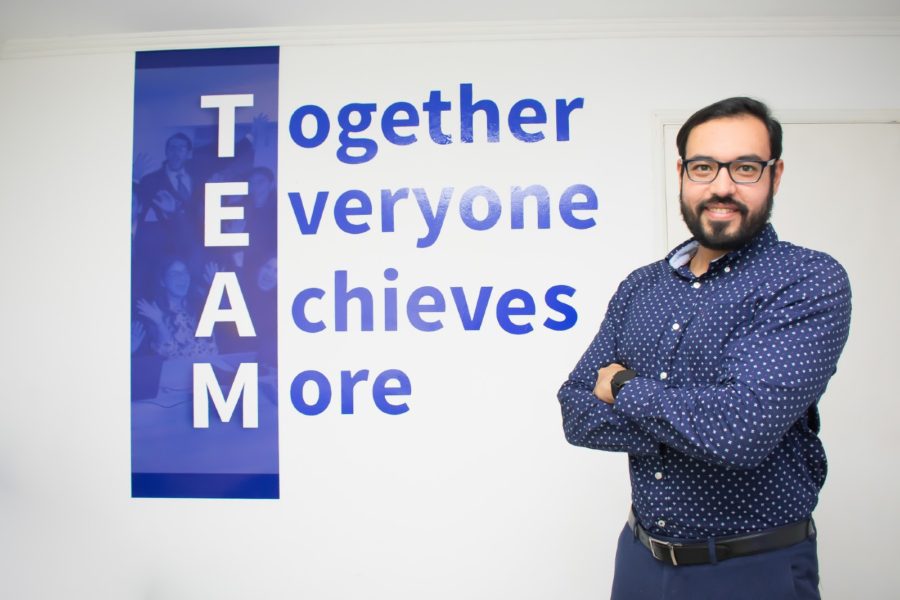In today’s fast-paced and highly demanding work environments, maintaining focus and concentration can be a real challenge. The constant barrage of emails, notifications, meetings, and deadlines can easily derail our attention and hinder our productivity.
However, with brain training and the right strategies and techniques, it is possible to enhance concentration and achieve a state of heightened focus at work.
Whether you are a professional seeking to boost your productivity or an individual striving for a better work-life balance, this article will equip you with a comprehensive set of strategies and insights to improve concentration at work.
So, let’s embark on this journey to unlock your full potential, sharpen your focus, and accomplish your professional goals with precision and clarity.
The Power of Mindfulness: Techniques for Enhancing Concentration at Work

Finding ways to enhance concentration and focus is crucial for productivity and success. One powerful technique to affect concentration that has gained significant attention in recent years is mindfulness.
Mindfulness involves intentionally paying attention to the present moment, without judgment and can be applied to various aspects of our work lives.
Here are some effective mindfulness techniques to help improve concentration at work:
- Mindful Breathing: Take a few moments to focus on your breath. Notice the sensation of each inhale and exhale. Whenever your mind starts to wander, gently bring your attention back to the breath. This simple practice can anchor your mind and help you remain focused on the task at hand.
- Body Scan: Set aside a few minutes to do a body scan meditation. Starting from your toes and moving up to the top of your head, pay attention to each part of your body, observing any sensations or tension. This practice promotes body awareness and relaxation, creating a foundation for improved concentration.
- Mindful Task Transition: Before moving from one task to another, pause for a moment. Take a deep breath and consciously let go of the previous task. By bringing your full attention to the present moment and mentally preparing yourself for the next task, you can minimize distractions and stay focused.
- Single-Tasking: Instead of juggling multiple tasks simultaneously, practice single-tasking. Choose one task and give it your undivided attention until completion or a designated break. By focusing on a single task, you can channel your energy and concentration more effectively.
- Mindful Eating: Use your lunch break as an opportunity to practice mindful eating. Pay attention to the tastes, textures, and sensations of each bite. Slow down and savor your food, fully engaging your senses. This practice not only enhances concentration but also promotes a sense of nourishment and well-being.
- Digital Detox: Set aside dedicated periods to disconnect from digital devices and notifications. Constant exposure to emails, messages, and social media can disrupt focus and impede concentration. Give yourself designated technology-free intervals to immerse yourself fully in your work without distractions.
- Mindful Communication: Practice being fully present and attentive during conversations and meetings. Listen actively, without interrupting or pre-planning your response. By giving your complete attention to the person speaking, you can improve your comprehension and strengthen relationships.
- Mindful Movement: Incorporate mindful movement breaks throughout your workday. Whether it’s stretching, walking, or practicing yoga, bring awareness to your body and movements. Engaging in physical activity mindfully can refresh your mind, release tension, and increase your ability to concentrate.
- Mindful Visualization: Before tackling a challenging task, take a moment to visualize yourself successfully completing it. Picture yourself engaged, focused, and in a state of flow. This practice can help build confidence and prime your mind for optimal concentration.
- Mindful Reflection: At the end of each workday, set aside a few minutes for reflection. Review your accomplishments, challenges, and lessons learned. By consciously acknowledging your achievements and areas for improvement, you can enhance your self-awareness and refine your strategies for better concentration in the future.
Incorporating mindfulness into your work routine can have a profound impact on your ability to concentrate and excel. By implementing these techniques, you can develop a greater sense of clarity, focus, and resilience in the face of distractions.
Start small, be patient with yourself, and gradually integrate mindfulness practices into your daily work life to enhance cognitive abilities and unlock the full potential of improved concentration.
Effective Time Management Strategies to Boost Concentration in the Workplace

Time management plays a critical role in enhancing concentration and productivity. By implementing effective strategies to manage your time wisely, you can optimize your ability to focus, minimize distractions, and accomplish tasks with greater efficiency. Let’s take a look:
Prioritize Tasks
To start your day on the right track, prioritize your tasks. Identify the most important and urgent ones and allocate your energy and attention to complete tasks accordingly.
By focusing on high-priority work, you can direct your concentration toward tasks that have the greatest impact on your goals and objectives.
Break Tasks into Smaller Steps
Large and complex tasks can be overwhelming, making it difficult to maintain concentration. Break them down into smaller, more manageable steps. This approach allows you to focus on one step at a time, keeping your attention sharp and preventing feelings of being overwhelmed.
Time Blocking
Create a structured schedule by allocating specific blocks of time for different tasks or types of work. Time blocking helps you dedicate focused periods to specific activities without getting distracted by other tasks.
By setting clear boundaries for each task, you can concentrate fully and make progress efficiently.
The Pomodoro Technique
The Pomodoro Technique is a time management method that enhances concentration and productivity. Work in focused bursts, typically 25 minutes, followed by a short break of 5 minutes.
After completing four Pomodoros, take a longer break. This approach harnesses the power of time constraints and allows for intense focus during work intervals.
Avoid Multitasking
Multitasking may seem like an efficient way to tackle multiple tasks, but it actually hampers concentration. Instead, focus on one task at a time.
Give it your undivided attention and complete it or reach a natural break before moving on to the next task. By eliminating the cognitive load of multitasking, you can maintain your concentration and perform better.
Minimize Distractions
Identify and minimize potential distractions in your work environment. Silence notifications, close unnecessary tabs or apps on your computer, and create a physical workspace that promotes focus and minimizes interruptions.
Minimizing distractions helps you maintain a clear and concentrated mind during work hours.
Set Realistic Deadlines
Establish realistic deadlines for tasks and projects. Setting deadlines helps you structure your work and allocate your time effectively.
By giving yourself reasonable timeframes, you can approach your work with a sense of calm and focus, without feeling overwhelmed or rushed.

Use Productivity Tools
Leverage productivity tools and apps to manage your time effectively. These tools can help you plan your tasks, track your progress, and stay organized.
From to-do lists and project management software to time-tracking applications, utilizing productivity tools streamlines your workflow and enhances your ability to concentrate on your work.
Effective time management is essential for improving concentration at work. By prioritizing tasks, breaking them down, and allocating your time wisely, you can maximize your focus and minimize distractions.
Incorporate strategies such as the Pomodoro Technique, avoiding multitasking, and minimizing distractions to improve cognitive function and enhance your ability to concentrate on important work.
Remember, time is a valuable resource, and by managing it effectively, you can boost your concentration, increase productivity, and achieve better results in your professional endeavors.
The Role of Nutrition in Improving Concentration and Focus at Work
Nutrition plays a vital role in our overall well-being, including our cognitive function and ability to concentrate. By fueling our bodies with the right nutrients, we can optimize our brain health and enhance our focus and productivity in the workplace.
Here are some key ways in which nutrition can positively further brain function and impact concentration at work:
- Balanced Meals: Consuming well-balanced meals that include a combination of complex carbohydrates, lean proteins, and healthy fats provides a steady supply of energy to the brain. This helps sustain concentration and prevents energy crashes throughout the day. Incorporate whole grains, fruits, vegetables, lean meats, fish, nuts, and seeds into your meals for optimal nutrition.
- Hydration: Proper hydration is essential for optimal brain function. Dehydration can lead to fatigue, decreased cognitive performance, and difficulty concentrating. Make it a habit to drink enough water throughout the day to stay hydrated and maintain mental alertness.
- Limit Sugar and Processed Foods: Foods high in added sugars and processed ingredients can cause energy crashes and impair concentration. These foods often lack essential nutrients and can lead to fluctuations in blood sugar levels. Opt for whole, unprocessed foods whenever possible to support sustained energy levels and mental clarity.
- Caffeine in Moderation: While caffeine can provide a temporary boost in alertness and concentration, excessive consumption can lead to jitteriness, anxiety, and disrupted sleep patterns. Moderate your caffeine intake and be mindful of its effects on your individual tolerance and sleep quality.
- Regular Meals and Snacks: Maintaining regular eating patterns throughout the day helps stabilize blood sugar levels and prevents energy dips. Aim to have balanced meals and nutritious snacks at appropriate intervals to sustain energy and concentration.
By getting enough sleep, adopting a nutritious and balanced diet, staying hydrated, and being mindful of our eating habits, we can support our brain health and enhance concentration and focus at work.
Prioritizing nutrition as a part of our overall well-being can lead to improved productivity, sharper cognitive abilities, and a more successful work experience.
Techniques for Minimizing Distractions and Increasing Concentration at the Office
In today’s bustling office environment, staying focused and maintaining concentration can be a real challenge.
However, by employing effective techniques, you can minimize distractions and enhance your ability to concentrate. Here are some strategies to help you stay on track and increase productivity:
Creating a Dedicated Workspace

Designate a specific area within your office as your dedicated workspace. Clear away unnecessary clutter and arrange your desk in a manner that promotes focus and organization.
Personalize your workspace with items that inspire you, creating an environment that fosters concentration and productivity.
Using Noise-Canceling Headphones
The constant buzz and noise in the office can be distracting. Invest in a good pair of noise-canceling headphones to block out background music and sounds and create a more serene work environment.
By reducing auditory distractions, you can maintain your focus and immerse yourself in your tasks.
Setting Clear Boundaries
Communication is key when it comes to minimizing interruptions. Establish clear boundaries with your colleagues, indicating when you need uninterrupted work time. Communicate your preferences and make it known that you should only be disturbed for urgent matters. By setting boundaries, you create a work atmosphere that respects concentration and productivity.
Prioritizing and Planning
Starting your day with a clear plan of action is crucial for staying focused. Prioritize your tasks based on importance and urgency. Break them down into smaller, manageable steps, and allocate dedicated time slots for each task. This approach helps you stay organized and prevents you from getting sidetracked by less important or non-urgent activities.
Implementing Time Blocking
Time blocking involves assigning specific time blocks for different types of work or tasks. By structuring your schedule in this way, you create focused periods dedicated to specific activities. This technique helps minimize distractions and keeps you focused on one task at a time, boosting your productivity and concentration.
Minimizing Digital Distractions
Digital distractions can significantly hinder your concentration. Silence non-essential notifications on your devices to minimize interruptions. Close unnecessary tabs or applications on your computer to avoid the temptation of social media or unrelated tasks. Utilize productivity apps or website blockers to limit access to distracting websites during work hours.

Taking Regular Breaks
While it may seem counterintuitive, taking regular breaks enhances your concentration and productivity. Incorporate short breaks into your work routine for stretching, walking, or engaging in quick mindfulness exercises. These breaks provide mental rejuvenation, prevent burnout, and help you return to your tasks with renewed focus and energy.
Elevate Your Productivity and Unlock Your Full Potential
Improving concentration at work is a vital skill that can significantly enhance productivity and job satisfaction.
By implementing the strategies and techniques mentioned in this article, such as practicing mindfulness, managing distractions, optimizing your work environment, and taking care of your own physical health, and mental well-being, you can cultivate a focused mindset and overcome common challenges that hinder concentration.
Remember that improving concentration is an ongoing process that requires self-awareness, discipline, and a commitment to personal growth.
It’s important to tailor these techniques to suit your individual needs and preferences. Experiment with different approaches, and be patient with yourself as you develop new habits.
By prioritizing concentration and making conscious efforts to minimize distractions, you can unlock your full potential at work. Not only will your mental resources make you accomplish tasks more efficiently, but you will also experience a sense of fulfillment and satisfaction in your professional endeavors.
So, take charge of your focus, embrace the power of concentration, and create an environment that supports your productivity. With perseverance and determination, you can elevate your performance, excel in your work, and achieve your goals with clarity and ease.
See more articles by Andrés Valerio





